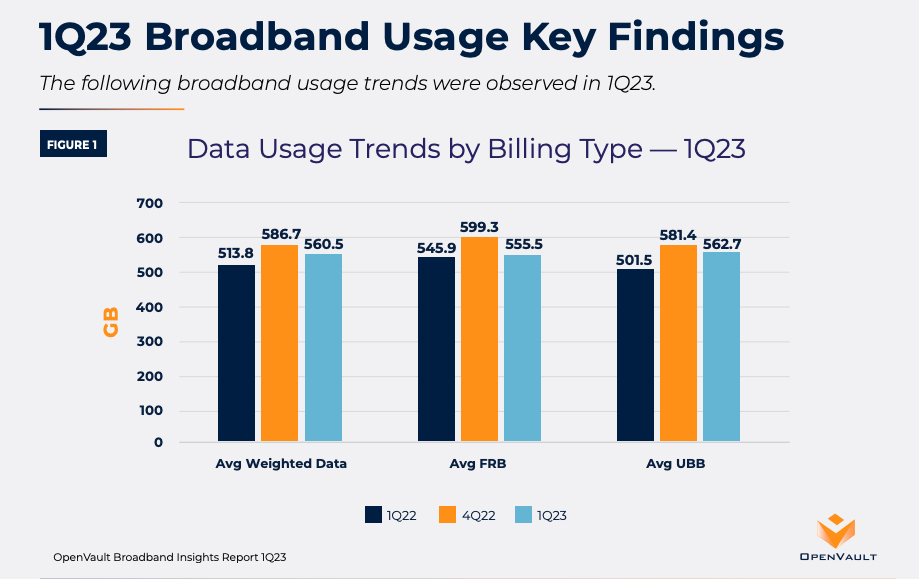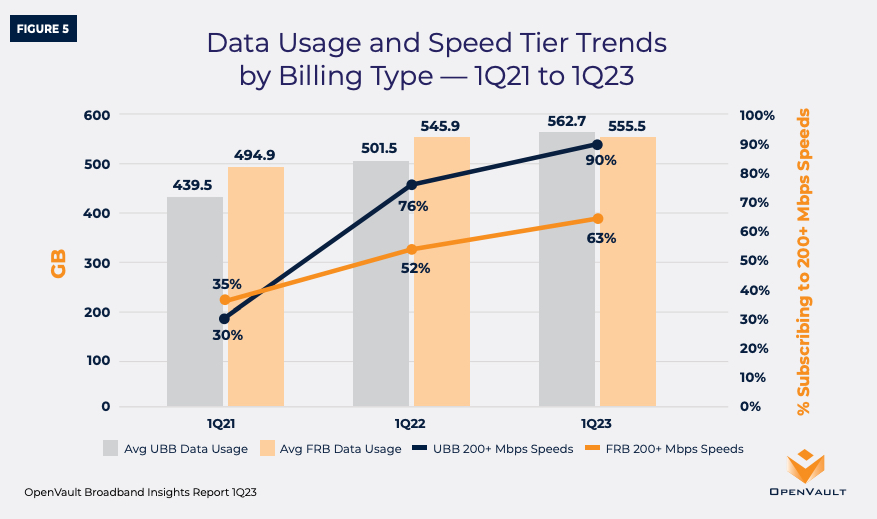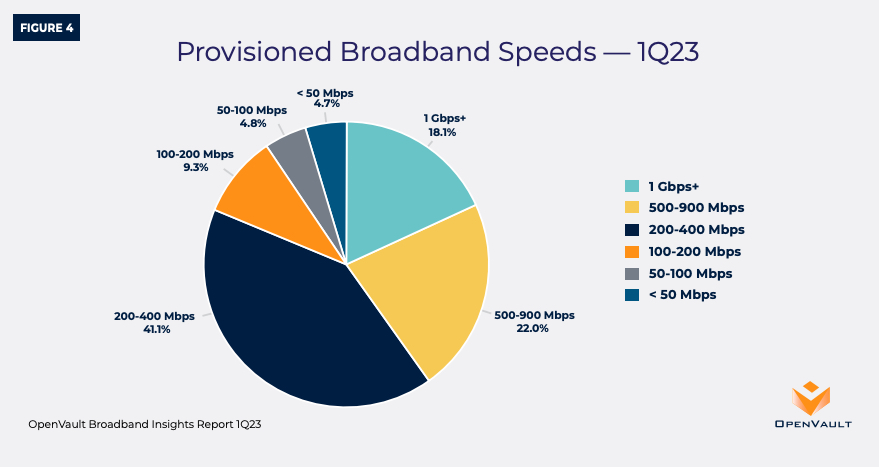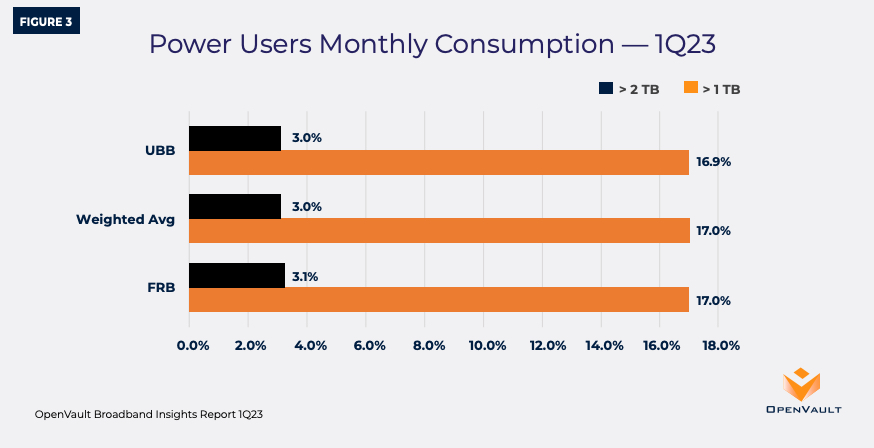
Belying a widely accepted broadband industry precept, usage-based customers in the U.S. actually consumed more data than flat-rate high-speed broadband subscribers did in the first quarter, according to the latest report published by Hoboken, N.J.-based OpenVault.
Home internet customers who pay extra for exceeding certain data thresholds consumed, on average, 562.7 gigabytes of data from January - March vs. 555.5 for subscribers who pay one flat rate for unlimited data.

“Implications for the broadband industry are mixed,” said OpenVault, which provides analytics and tools to the domestic broadband industry. “On the one hand, faster speed adoption often results in higher ARPU for operators and increased satisfaction for consumers as they ‘right-size’ to subscription plans that are aligned with their actual usage. On the other hand, operators who have viewed UBB as a tool to reduce strain on the broadband plant will need to explore new solutions for maintaining and improving network health and alleviating network congestion.”
A key reason for this counterintuitive development: Internet service providers have migrated more of their usage-based customers to higher speeds.
Ninety percent of usage-based customers are on speed tiers of 200 megabits per second or above vs. just 63% for flat-rate billing subscribers.

Less than 20% of U.S. home broadband customers are on speed tiers of under 200 Mbps, OpenVault said, while more than 18% of subscribers now have gigabit-speed internet or faster.

Meanwhile, 17% of all U.S. broadband users now chew through over 1 terabytes of data a month, while 3% consume more than 2 TB.








